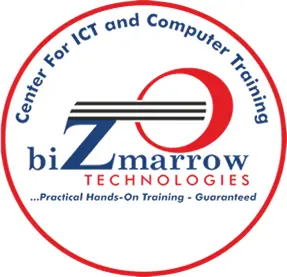Do you want to start and build a career as an accountant? Almost every business needs an accountant, so it is a lucrative career in Nigeria
Becoming an accountant requires the right mindset and skills.
Would you like to build a career in accounting and become relevant in Nigeria?
Accounting is one career that has been in existence long ago and will still remain relevant in the corporate world.
Building a career in accounting can open you up to a wealth of fulfilling and exciting job opportunities. Accounting is one job role that is always in high demand because its important that cuts across different sectors.
This article gives a step-by-step guide to building a successful career in accounting.
What is Accounting?
Accounting is the systematic and comprehensive recording of financial transactions pertaining to a business. Accounting also refers to the process of summarizing, analyzing and reporting these transactions to oversight agencies, regulators and tax collection entities.
The financial statements that summarize a large company’s operations, financial position and cash flows over a particular period are a concise summary of hundreds of thousands of financial transactions it may have entered into over this period.
Who is an Accountant?
An accountant can be defined as a professional who performs accounting functions such as audits or financial statement analysis. Accountants can either be employed with an accounting firm, a large company with an internal accounting department or can set up an individual practice.
Accountants are given certifications by national professional associations, after meeting state-specific requirements, although non-qualified persons can still work under other accountants, or independently.
Possible Careers Fields in Accounting
Now that you have decided to become an accountant, what are the possible career fields you can pursue?
Internal Auditor: Auditors are financial professionals that review business records for accuracy. Auditors are basically employed to provide assurance regarding the compliance of financial statements to certain rules. The management of the company to be audited is responsible for the preparation of the financial statements.
Compliance Executive: A compliance executive is a professional that plays a supportive role in regulatory risk management, compliance, and advisory functions. The compliance executive assists in ensuring the company/financial institution adheres or complies with applicable laws, regulations, and rules because the integrity of the company/financial institution is important.
Financial Analyst: A financial analyst evaluates a financial situation and generates appropriate reports. The financial analyst interprets available data to analyze current trends to forecast future profitability by determining a fair market value for the sale of company stock and recommending action to the company.
Accountant: Accountants analyze, evaluate and report financial matters for organizations, businesses, and individuals. An accountant also advises his client or the company on financial issues by examining budgets, profit, and loss statements
The job duties of an accountant vary from one organization to the other but your responsibilities will cover:
- Managing all accounting operations
- Reconciling bank statements and monthly financial reports
- Preparing monthly staff payroll and ensuring payment of salaries as at when due
- Documenting all financial transactions by entering account information
- Suggesting ways to reduce cost, enhance revenue and improve profit
- Preparing, publishing and circulating timely monthly financial statements.
- Managing and ensuring compliance with local, state and Federal Government reporting requirements and tax filings.
- Paying vendors, billing clients and managing post-due accounts
- Improving businesses efficiency where money is concerned
- Analyzing financial records to check for inconsistencies and errors
- Ensure that statements and records comply with laws and regulations
- Balancing bank accounts, recording forms of income and verifying deposits and other transactions
HOW TO BUILD A CAREER IN ACCOUNTING AND BECOME SUCCESSFUL?
Educational Requirement
Obtain a bachelor’s degree in accounting
You may also choose to pursue finance if you have a desire to work as a certified management accountant.
If you wish to become an auditor, choose several elective auditing classes while you are still in school. Auditing is 1 of the popular career paths you can take, but the focus differs from that of public accounting or management accounting.
Accounting Qualification
For entry-level positions, a degree in accounting, business administration, banking and other related fields. From recent trends, a degree in financial accounting may not get the job you desire. So being certified will put one in a more disadvantaged position.
Practical Hands-on Training
As a graduate or undergraduate, you can’t afford to ignore technical education in business software like accounting software if you really want to make headway and breakthrough in the accounting field.
You need practical accounting software skills to impress your employers and equally be ahead of the game.
To employ anybody to handle accounting software vital to enhance growth in your business, the person must have a better understanding of accounting principles and good business processes
Without this kind of knowledge, it’s tough to run a successful multi-million naira company, and this is where good accounting training comes into play – with regard to accounting functionality, inventory management and other areas.
Key Traits and Skills Needed For an Accounting Career
Knowing the key traits and skills needed to become an efficient accountant puts you in a better position to enjoy a fulfilling career. Below are some of the skills and traits you should focus on:
Highly Organised: The ability to keep data, paperwork and all cash flow figures both in and out of an organisation requires you to be highly and excellently organised. This skillset helps you maximize productivity on the job.
Time Management: Prioritizing and managing time is crucial your work as an accountant given the role you will play in important and strategic decisions of organizations you work with. This will help you meet your deadlines.
Attention to Detail: Working with numbers and a lot of data requires a ‘clear-eye.’ An eye for detail and proper attention to detail is a core trait you need in your day-to-day activities.
Trustworthy and Creative: Accountants handle sensitive and confidential information, which require you to be very trustworthy in carrying out your task with integrity and also be creative while doing that. Technology has provided a new plethora of tools and applications that enhance the work you do. Coming up with new ideas, fresh strategies and ways of carrying out your tasks and delivering top-notch services with the best practices calls for a lot of creativity and hard work.
Communication Skills: Having great communication skills is essential in your pursuit of a successful career in accounting. Breaking down financial jargon and key insights to non-finance staff, colleagues and organization is very important to be understood.
General Industry and Business Knowledge: As an accountant, you need to have a firm grasp on happenings, trends and advancements within your industry and niche. The experience and business knowledge you need will, however, differ from industry and industry.
If you are building a career in accounting, the above accounting skills are very important to have which is what Bizmarrow Technologies offers.
The better trained you’re on a software system, the more productive you will be.
All things being equal, when employees feel confident using accounting software they will rely on it more in order to perform their responsibilities and of course, the place of job confidence cannot be overstated.
This in turn can help automate previously manual processes, therefore reducing the instance of human error.
This also means less time is wasted learning how to use a system every time you want to perform a task, and coming up with workarounds for managing certain processes.
Add value to your certificate as a graduate by taking a course in accounting practical hands-training at Bizmarrow Technologies.
Practical hands-on accounting software training
Learn how to use accounting software professionally
We train you to develop skills for real career growth cum development for the digital age
Practical hands-on training–Learn by working on real-world problems
Learn from experts who are active in their field, not out-of-touch trainers
Learning accounting software practical skills could be an important step in building a successful career in accounting – Bizmarrow Technologies is the good news in that regard.
Conclusion
Becoming a successful accountant requires just more than skills, certifications, etc. It also requires that you keep abreast of happenings in the industry.
Furthermore, building a career in accounting just like every other career requires hard work, passion, and dedication. Getting the ‘Practical hands-on training skills’ and the appropriate account certification is a great step to take in building your career.








